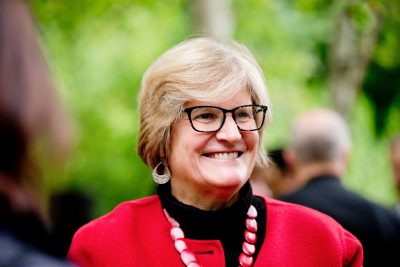
From President Clayton Spencer
This major fundraising endeavor — the largest in our history — will strengthen the college for decades to come.
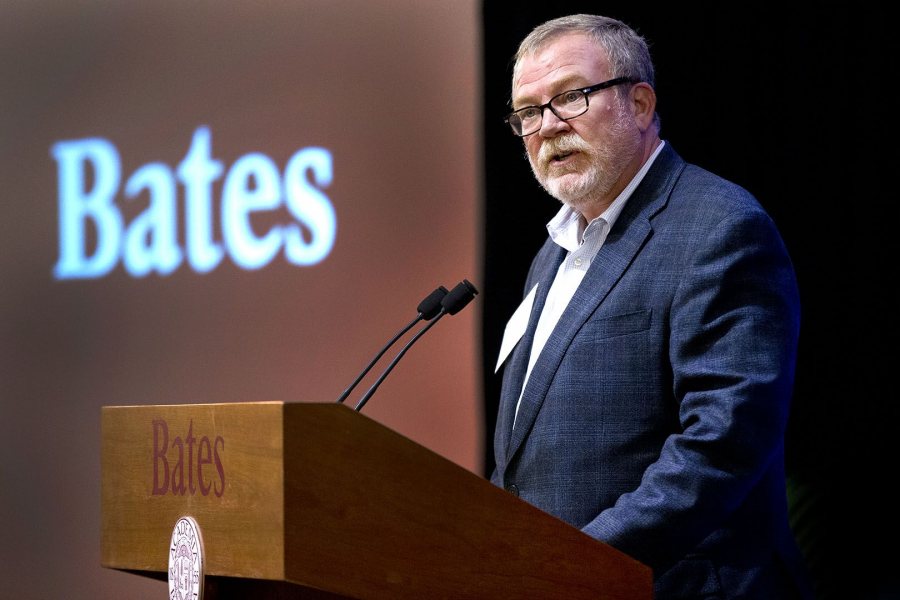
Seven Bates College families have made gift commitments totaling $19 million to create six new endowed professorships — three to launch the college’s new Program in Digital and Computational Studies, and three to fund new faculty positions in chemistry, economics, and neuroscience.
The $19 million includes a commitment from Michael Bonney ’80, chair of the Bates College Board of Trustees, and his wife, Alison Grott Bonney ’80, of $10 million — the largest single gift in the history of Bates.
“I am enormously grateful for the generosity of this group of families who have chosen to support our most important priority — the academic program — in the most substantial way possible, through gifts to the endowment,” said Bates President Clayton Spencer in her remarks at a festive campus announcement celebration Friday.
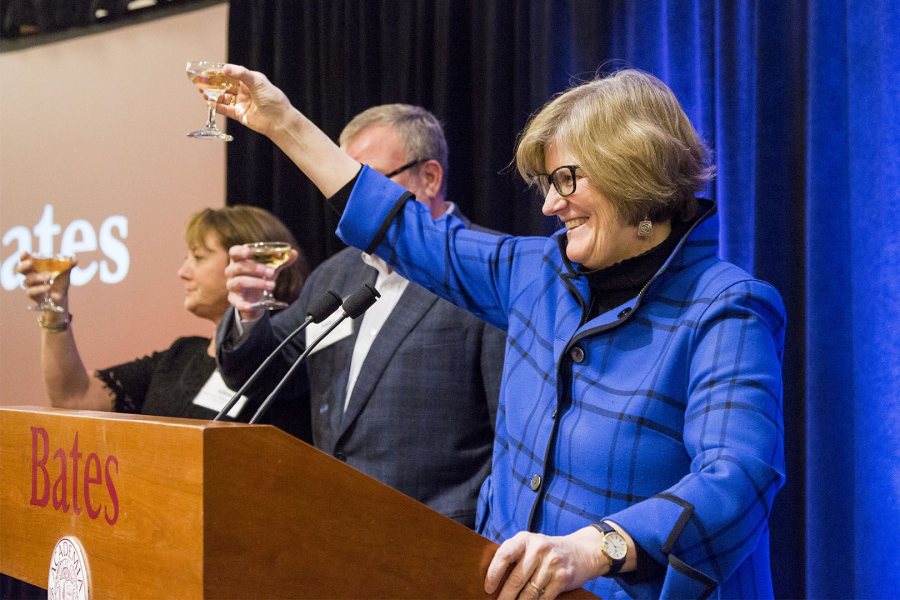
“I am thrilled that we can move forward immediately to launch the program in digital and computational studies, and very pleased that this new venture will happen in the context of bringing strength to existing disciplines as well.”
“I am enthusiastic about how Bates is working to establish itself as a model for the 21st-century liberal arts college.”
“Higher education is in the midst of significant change,” Michael Bonney said, “and I am enthusiastic about how Bates is working to establish itself as a model for the 21st-century liberal arts college: committed to core educational principles on the one hand, and leading innovation on the other.”
“Humanity faces daunting challenges,” he added, “but solutions will come as long as we equip our best young minds with the rigor, imagination, and drive to tackle the world’s hardest problems. Bates has been meeting this challenge for generations — including multiple generations in my own family — and I have never been more optimistic about the future of the college.”
Bonney said that he “thanks the families who have joined Alison and me by making these extraordinary gifts, and I hope that this will inspire others to consider what is possible to achieve through their philanthropy.”
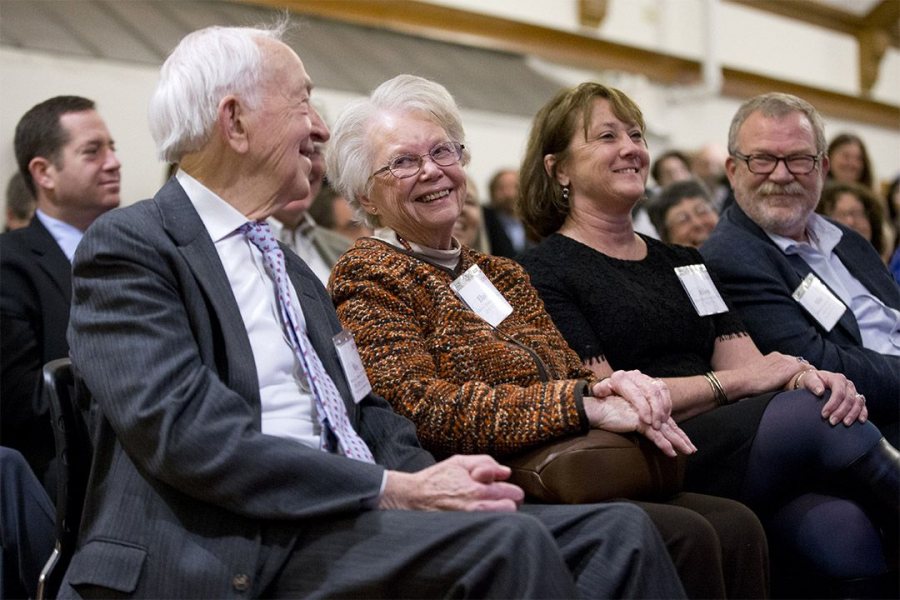
The six new endowed chairs represent the first expansion of the faculty in more than a decade. This growth will occur as the college maintains its current enrollment of approximately 1,750 students and its student-faculty ratio of 10-to-1 — reflecting Bates’ commitment to delivering a rigorous education centered on deep, sustained interactions among students and faculty.
The Bonney family’s unprecedented generosity is joined by gift commitments from donors George Colony and Ann Colony P’12, P’17 of Concord, Mass.; Darrell Crate ’89 of Hamilton, Mass.; J. Blair Frank ’89 and Tena Fishman Frank ’89 of Pacific Palisades, Calif.; and three anonymous families.
The Bonney family’s $10 million commitment will establish and name three of the six new professorships, one each in digital and computational studies, neuroscience, and chemistry with a preference for biological chemistry.
The Colony family gift will create a named DCS professorship, which will be filled by the program director. Funds from the gift commitments from the Frank and Bonney families, and two of the anonymous families, will together endow the third DCS professorship. Crate’s commitment to the endowment will provide permanent program support for DCS.
The third anonymous gift will create a new professorship in economics. The designation of the six new chairs reflects critical needs of the college and important opportunities for Bates’ students in key intellectual areas.
“We have an unprecedented opportunity to shape the faculty and curriculum of the future — in terms of excellence, diversity, and intellectual scope.”
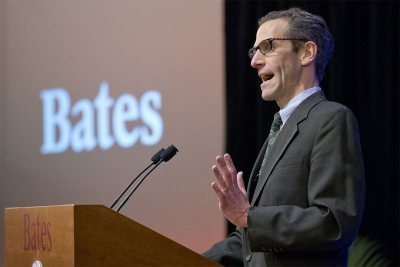
“These new chairs are truly a shot in the arm for all of us at Bates,” said Matt Auer, vice president for academic affairs and dean of the faculty.
“For years we have been adding programs and offerings in response to student interest and the evolution of intellectual fields, without adding the faculty to support these undertakings. When combined with the opportunity presented by the retirement of roughly a third of our faculty in the course of the present decade, we have an unprecedented opportunity to shape the faculty and curriculum of the future — in terms of excellence, diversity, and intellectual scope.”
Michael Bonney has served as a Bates trustee since 2002 and as board chair since 2010. The Bonneys are parents of three Bates graduates, and Michael’s father and grandfather attended Bates.
“I’ve had a family association with Bates College since the 1920s, so I know where Bates is today relative to where we’ve been,” he said.
Expanding the college’s faculty by six while holding student enrollment steady will allow Bates to maintain the student-faculty relationship as the defining element of the Bates academic experience. This ensures that the faculty has the strength and capacity to facilitate the widest range of interactions, formal and informal — in the classroom and beyond, including mentoring, thesis advising, study abroad, collaborative research, and shared projects such as course design.
Further, by investing in DCS, Bates will offer a fresh perspective on the intersection of digital technology and the liberal arts experience in today’s connected world.
This historic set of gift commitments begins a new chapter for Bates — one focused on building the college’s endowment to provide meaningful future investments in faculty development and the student experience across the full academic program.